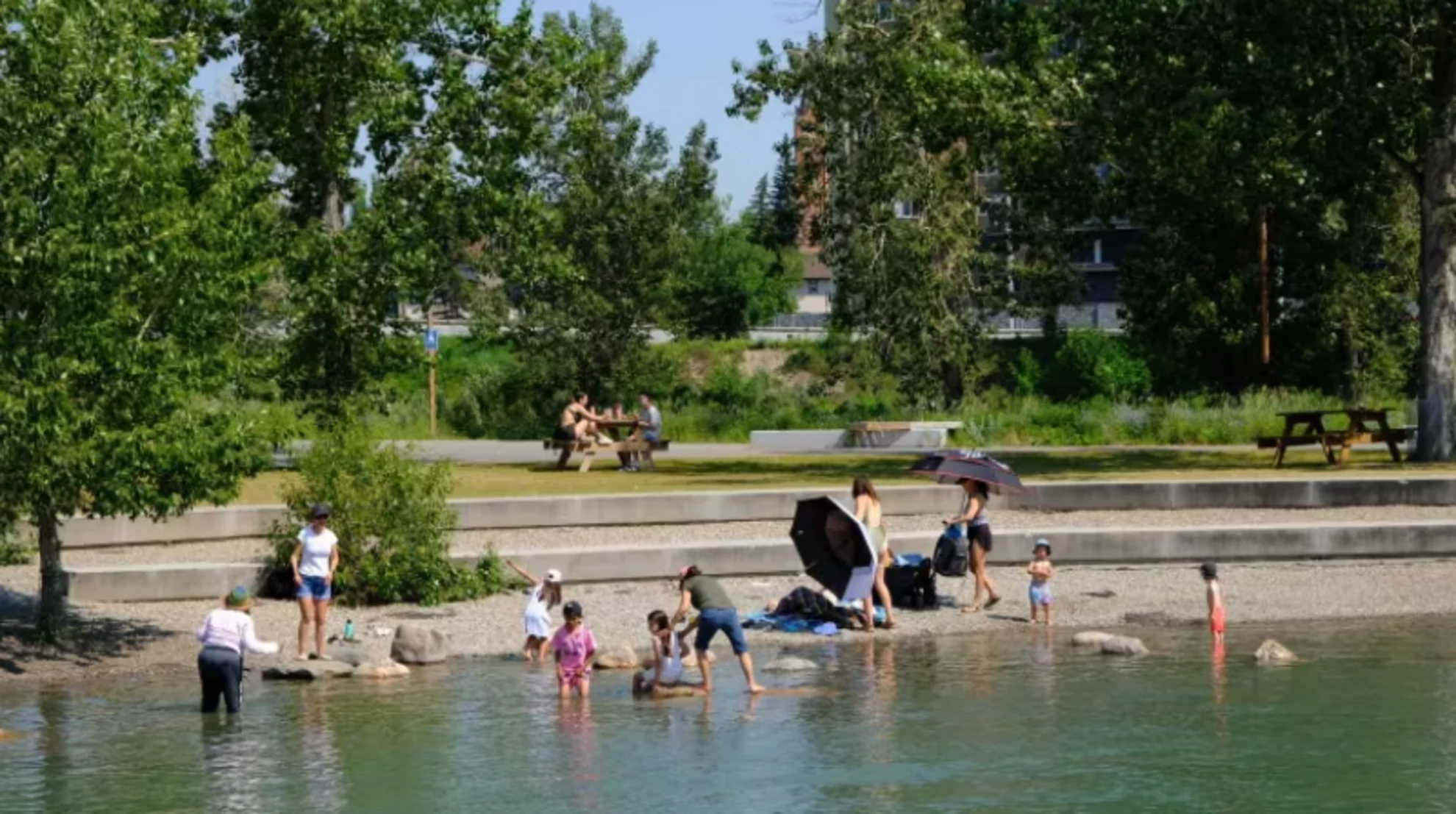
Outdoor pools in Calgary now allowed as water supply restoration work continues
In response to high temperatures in Calgary, the city says all outdoor pools will now be allowed, even though Stage 3 outdoor water restrictions remain.
After a catastrophic feeder main break on June 5 that left Calgary in a water-supply crisis, the situation with Calgary's water system continues to improve, and officials have been gradually lifting restrictions.
The city moved from Stage 4 to Stage 3 outdoor water restrictions and lifted the fire ban on the weekend.
Typically, Stage 3 restrictions prohibit the filling of outdoor pools and use of spray parks, but the city announced an exemption Saturday for outdoor public pools and city-owned spray parks.
FORECAST: Severe storm risk spans the Prairies, amid record-setting heat
"As of today, we will be extending this exemption to all outdoor pools, including private residential, backyard and kiddie pools, as well as non-residential outdoor pools. We hope this move creates more opportunities for people to stay cool over the coming weeks," said Francois Bouchart, the director of capital priorities and investment with the city's infrastructure services department, during the city's Wednesday afternoon update.
"This was a decision made with health and safety in mind to provide a way for Calgarians to escape from the heat. We know that it can be challenging to stay cool during this weather."
Water use expected to increase
On Monday, water use reached 540 million litres, up from the 507 million litres used Sunday.
Tuesday's usage increased to 555 million litres, and the city says it expects usage will increase yet again on Wednesday in light of the extremely hot temperatures. The mercury hit 34 C by mid-afternoon, Environment Canada reported.
"When we get into prolonged stretches of warm weather, it's normal for water use to increase. That's the pattern we're seeing now," said Bouchart.
However, he says Calgary's distribution system is stable and able to meet water demand as long as Stage 3 outdoor water restrictions are in place.
Under the lower-level restrictions, plants can be watered by hand using a can or container, but sprinklers and hoses are not permitted.
Businesses can use water for construction purposes, such as dust control and grading.
"The last thing any of us wants is another major break that could put us back to where we were in early June," said Bouchart.
2 wire snaps detected along feeder main
According to the City of Calgary, the pipe is now operating at 55 per cent capacity while pressure has gradually continued to increase.
"Since Sunday, our monitors have detected two additional wire snaps along the feeder main. These two snaps aren't a sign that another major break is imminent, but they do give us some important clues about what the pipe can handle."
In a statement emailed to CBC News, a spokesperson for the City of Calgary confirmed the two new wire snaps occurred near areas that crews had "already identified as having some structural weaknesses."

The section of the Bearspaw south feeder main that ruptured is pictured here. The feeder main is a prestressed concrete cylinder pipe, a composite pipe material made primarily of concrete. (City of Calgary)
The statement also noted the city expects water demand on Wednesday — which is anticipated to be the hottest day of the week — to reach 600 million litres.
Managing demand while the pipe performs at 55 per cent capacity is why the city says Stage 3 outdoor restrictions remain in place.
Bouchart also says the increase in water use as temperatures soar has given crews an "opportunity to see how the system performs under increased demand."
"I know you're looking forward to having more restrictions lifted, and we are, too. But for now, I'd like to ask for your continued support. Fill your outdoor pools, hand-water your gardens, but please refrain from running your sprinklers and hoses at this time."
This article, written by Lily Dupuis, was originally published for CBC News. With files from Scott Dippel and Omar Sherif
Thumbnail image courtesy: Josh McLean/CBC









